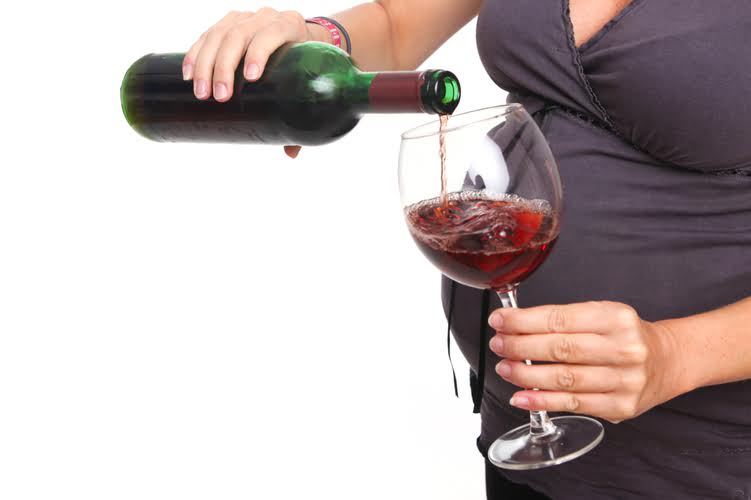How to Sober Up: Fast, Before Bed, and in the Morning
Content
- Does Stopping Alcohol Consumption Cause Insomnia
- Do Not Ignore the Benefits of Therapy for Sleep Disturbances during Recovery
- Remedy #3: Amino Acids For Sleep
- How Long Does Insomnia Last After Quitting Alcohol?
- Treating Alcohol Withdrawal Insomnia
- How are alcohol, sleep and mental health linked?
- Coping With Alcohol-Related Sleep Problems
Stick with drinks that take a while to finish, like beer and wine. Factors — such as how much you weigh and whether you’ve eaten recently — can also influence how quickly your body absorbs alcohol. An alcohol overdose, also known as alcohol poisoning, can be fatal how to sleep without alcohol or lead to irreversible brain damage. The search for a way to sober up fast can be an endless one. There are many tall tales and secret recipes out there that claim to have solved this problem. There’s nothing you can do to make yourself sober up more quickly.

Perhaps you’ve been wanting to get into a workout routine and eat healthier. Removing alcohol, even just for a month, can have a cascading effect. Research shows that successfully changing one behavior boosts confidence and self-efficacy, which can prompt you to make more healthy changes. “Your brain almost goes into hyperdrive for a while after you remove the alcohol and are no longer numbing it,” it continued. Experiencing intense emotions — from despair to joy — is expected, especially for former heavy drinkers, since alcohol numbs feelings and Dry January puts them on full display. They recommend drinking lots of water and filling up on protein to support the process.
Does Stopping Alcohol Consumption Cause Insomnia
This part of your body doesn’t like change, and it will tell you all sorts of lies in order not to rock the boat, but I never met anyone who said they regret giving up alcohol. Sleep hygiene refers to the positive actions you do before and after sleep that help create a routine or schedule. These actions become habits that help your body’s natural biological clock know what to expect throughout each day. Both drinking alcohol and withdrawing from alcohol can cause problems with sleep maintenance.
Here is my top 10 list of herbs for a person that quit drinking and can’t sleep. The average person’s occasional insomnia is a walk in the park compared to the twitching, spiraling negative thoughts, and intense night sweats alcohol withdrawal can cause. Because it is such a widespread problem, most premier rehab programs will incorporate various therapies designed to help you get better-quality sleep. Learning how to deal with insomnia after quitting alcohol may take some time. Everyone is different so you may need to find what works best for you. Call Eudaimonia Recovery Homes today to learn more about our sober living homes in Austin, Houston, and Colorado Springs or to receive more information about our recovery support services.
Do Not Ignore the Benefits of Therapy for Sleep Disturbances during Recovery
Shots of hard liquor get you drunk very fast, so avoid them. Avoid trying to relieve your hangover by drinking more alcohol. Instead of curing you, this tactic, known as “hair of the dog,” may simply lead to delayed symptoms. Even if having more alcohol can temporarily relieve or mask your symptoms, your hangover will return once you stop drinking. Leave an over-the-counter pain reliever such as ibuprofen on your nightstand to take in the morning. While alcohol is in your system, avoid products with acetaminophen, like Tylenol and some forms of Excedrin.
How long after quitting alcohol does sleep improve?
After one week away from alcohol, you may notice that you are sleeping better. When you drink, you typically fall straight into a deep sleep, missing the important rapid eye movement (REM) sleep.
“REM sleep is important for mental restoration, memory and emotional processing and is often when you dream. A lack of this can lead to cognitive impairment, an inability to concentrate and daytime drowsiness,” Dr Sarkhel adds. Aggie Connor is a sober coach and the founder of Fresh and Fab in Southsea. She offers lifestyle coaching and advice to those who want to give up alcohol and has seen how drinking can influence our night-time routines. Many of us know how alcohol can make us feel drowsy or tired, and a significant number of us actually use its sedative effects to help us get to sleep on a regular basis.
Remedy #3: Amino Acids For Sleep
Sustained nightly drinking can establish worrying patterns that can persist even after people have stopped drinking, she and other experts say. The symptoms of alcohol withdrawal can be severe and should not be attempted alone. Targeted sleeping medication can be provided if insomnia continues to be a troubling symptom. These medicines are in addition to a medical taper and can assist in helping you fall asleep quicker, stay asleep longer, and wake up feeling better.

Post a comment